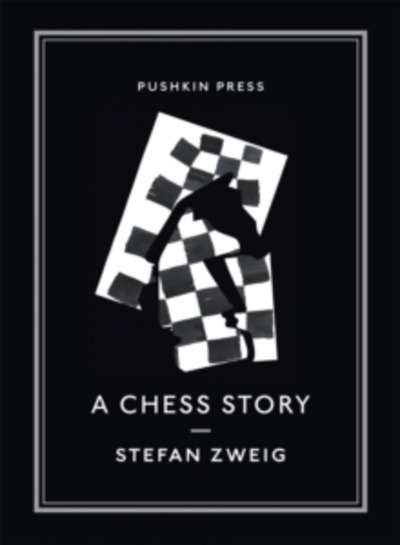A Chess Story

Editorial Pushkin Press
Fecha de edición noviembre 2013 · Edición nº 1
Idioma inglés
EAN 9781782270119
112 páginas
Libro
encuadernado en tapa blanda
Resumen del libro
An epic chess match on a transatlantic liner unearths a story of persecution and obsession. One of the most perfectly gripping novellas from a master of the form, Stefan Zweig. Chess world champion Mirko Czentovic is travelling on an ocean liner to Buenos Aires.
Dull-witted in all but chess, he entertains himself on board by allowing others to challenge him in the game, before beating each of them and taking their money. But there is another passenger with a passion for chess: Dr B, previously driven to insanity during Nazi imprisonment by the chess games in his imagination. But in agreeing to take on Czentovic, what price will Dr B ultimately pay? A moving portrait of one man's madness, A Chess Story is a searing examination of the power of the mind and the evil it can do.
'The rediscovery of this extraordinary writer could well be on a par with last year's refinding of the long-lost Stoner, by John Williams, and which similarly could pluck his name out of a dusty obscurity.' Simon Winchester, Telegraph 'Perhaps the best chess story ever written, perhaps the best about any game. Never mind that you may have never moved a pawn to King four; the story will grip you.'Economist 'His great achievement in short form'The Times A staunch pacifist after his time in the Ministry of War during the First World War, Stefan Zweig was, at his peak, one of the bestselling and most widely acclaimed authors in the world. Following Hitler's rise to power, he and his second wife fled Austria; first to England, then to America, and finally, in 1940, they travelled together to Brazil, where the couple took an overdose and died.
Biografía del autor
x{0026}lt;P x{0026}lt;B Stefan Zweigx{0026}lt;/B (Viena, 1881 x{0026} x02013; Petrópolis, 1942) fue un destacado escritor, biógrafo y ensayista austríaco, célebre por su estilo psicológico y humanista, que alcanzó una inmensa popularidad en las décadas de 1920 y 1930. Hijo de una familia judía acomodada, estudió filosofía y literatura en Viena, donde publicó sus primeros poemas y se relacionó con la élite cultural de su tiempo. Viajero incansable y firme pacifista, se opuso activamente a la Primera Guerra Mundial, lo que marcó profundamente su obra.x{0026}lt;/P x{0026}lt;P Autor prolífico en diversos géneros, escribió ficciones inolvidables como x{0026}lt;I Carta de una desconocidax{0026}lt;/I , x{0026}lt;I Amokx{0026}lt;/I , x{0026}lt;I La piedad peligrosax{0026}lt;/I y x{0026}lt;I Novela de ajedrezx{0026}lt;/I , así como estudios históricos y biografías literarias sobre figuras como Balzac, Dickens, Dostoyevski, María Antonieta y Fouché. Su obra x{0026}lt;I Momentos estelares de la humanidadx{0026}lt;/I es una de las más representativas de su talento narrativo y visión histórica.x{0026}lt;/P x{0026}lt;P Tras el auge del nazismo y la censura de sus escritos, Zweig se exilió sucesivamente en Inglaterra, Estados Unidos y Brasil. A pesar de su admiración por este último país, el desencanto ante el destino de Europa lo llevó a suicidarse junto a su esposa. Su autobiografía póstuma, x{0026}lt;I El mundo de ayerx{0026}lt;/I , es un emotivo testimonio de la cultura europea perdida. Su legado literario ha inspirado numerosas adaptaciones cinematográficas, incluida x{0026}lt;I El Gran Hotel Budapestx{0026}lt;/I de Wes Anderson, y sigue siendo valorado por su profundidad humanista y su mirada crítica ante los totalitarismos.x{0026}lt;/P








